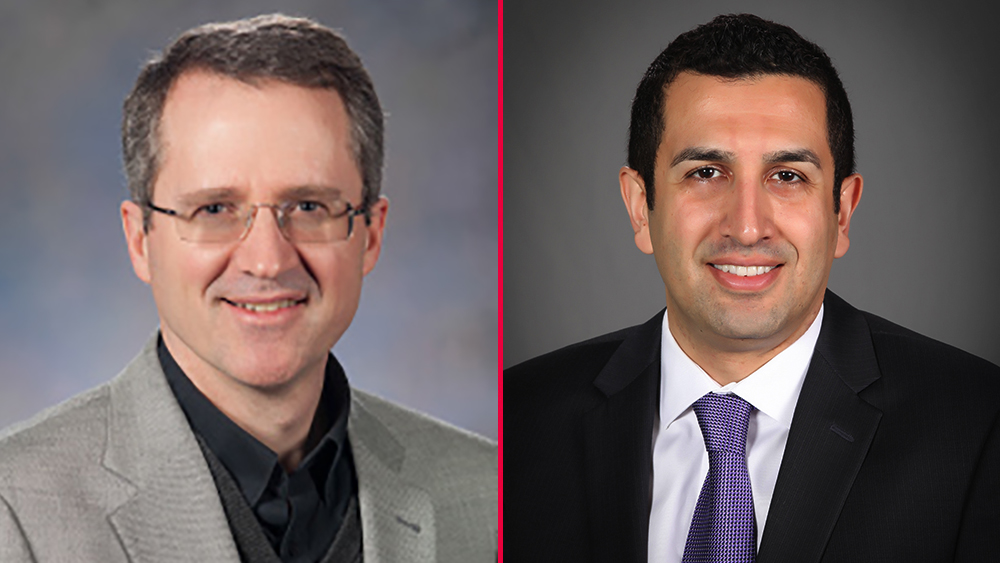
Dr. Tim Davis and Dr. Roozbeh Jafari were recently named recipients of the Texas A&M Engineering Experiment Station's Research Impact Award. The award recognizes research that has had an impact, broadly defined as leading to outcomes that extend beyond conventional boundaries, including opening new lines of research, solving a long existing problem or producing tools or products that have become widely adopted in practice by industry and/or government.
Davis received the award for “developing novel methods for solving graph problems using linear algebra and creating widely used algorithms and software for sparse matrix computations.” Jafari was recognized for “pioneering context-aware, physiological monitoring devices based on wearable computers.”
Davis is a professor in the Department of Computer Science and Engineering at Texas A&M University. His research is focused on two main areas: sparse linear algebra on graphics processing units (GPUs) and methods for solving graph algorithms in the language of sparse linear algebra over semirings. GPUs provide the promise of high performance and lower energy use, but they work best on very regular problems. The challenge is to map the irregular nature of sparse matrix algorithms to perform well on GPU architectures.
Davis’ many honors include receiving the 2018 Walston Chubb Award for Innovation and a Dean of Engineering Excellence Award from the College of Engineering. He was elected as a fellow of the Society for Industrial and Applied Mathematics for "contributions to sparse matrix algorithms and software, including the University of Florida Sparse Matrix Collection." He also is a fellow of the Association for Computing Machinery and the Institute of Electrical and Electronics Engineers.
“Dr. Davis’ work on sparse matrices and GraphBLAS is extremely impactful and found in a variety of products and tools,” said Dr. Scott Schaefer, department head and holder of the Lynn ‘84 and Bill Crane ‘83 Department Head Chair in computer science and engineering. “The interest from industry in his recent work has been extraordinary.”
Jafari is a professor with joint appointments in the Department of Biomedical Engineering, the Department of Computer Science and Engineering and the Department of Electrical and Computer Engineering. He is also the director of the Embedded Signal Processing Lab. His research focuses on wearable computer design and signal processing with applications in health care, wellness, and enhancing productivity and safety of the users.
He has received numerous honors and awards, including several best paper awards, and is a Presidential Impact Fellow at Texas A&M, a recipient of the National Science Foundation CAREER Award and a fellow of the American Institute for Medical and Biological Engineering.
“The potential for Dr. Jafari’s work on wearable computers to monitor health status and predict infections or other negative events is tremendous,” said Dr. Mike McShane, department head and holder of the James Cain Professorship II in biomedical engineering. “Of course the ongoing coronavirus pandemic has heightened interest in developing such advanced tools for the welfare of all.”
